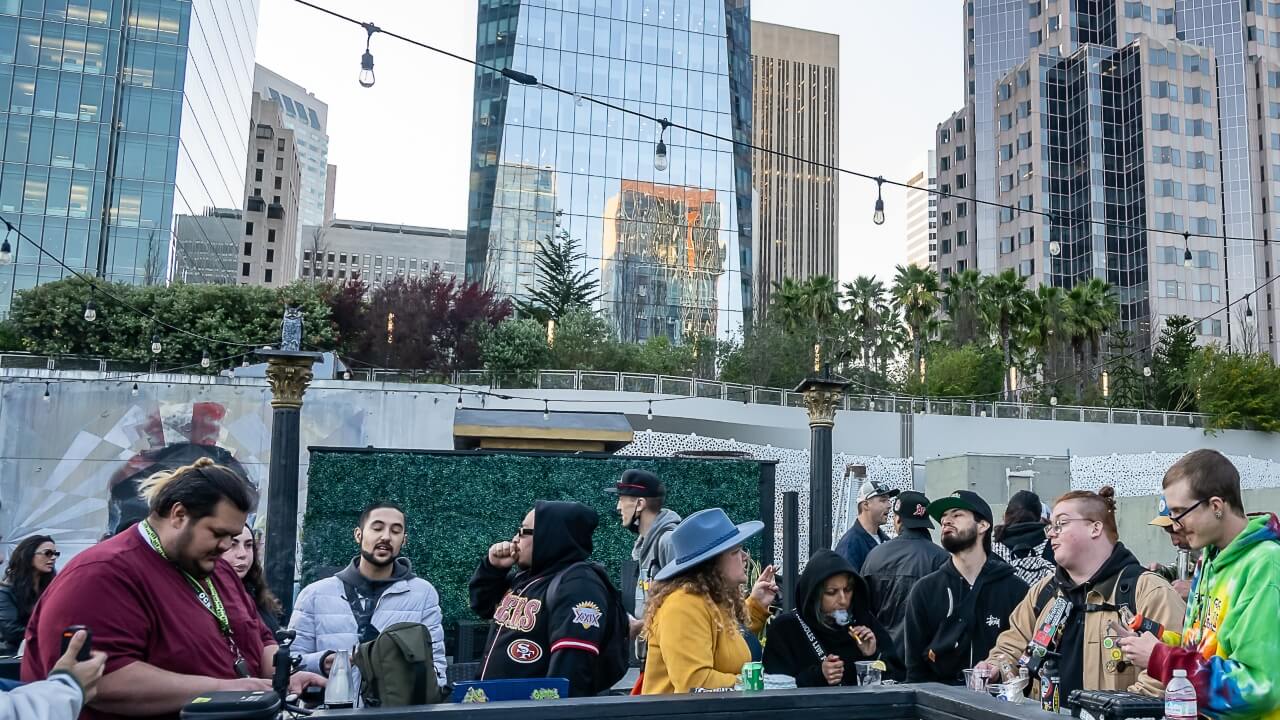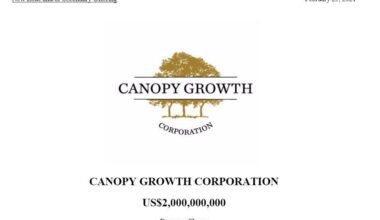SAN FRANCISCO – Every vice seems to have its day in this West Coast city infamous for indulgence.
But despite widespread acknowledgment of San Francisco as one of the cradles of legal marijuana in the United States with significant cannabis retail and production located within city limits, a “weed week” party remains the odd fun out.
There’s a whiff of a double standard at play.
After all, hop fanatics line up in the rain every February to have an internationally renowned brewer pour them a rare pint during SF Beer Week.
And celebrity chefs with enough Michelin stars to fill a firmament just finished bussing the tables that filled up during Spring SF Restaurant Week.
Fashion Week, Pride Week, Folsom Street Fair. The list goes on and on.
And all these occasions enjoy the earnest encouragement of San Francisco City Hall.
Yet there was no “official” 4/20 event in Golden Gate Park for the second year in a row after organizers and city officials failed to reach an acceptable arrangement.
That absence is all the more notable given the accepted origin story of the “4/20” term is rooted in nearby Marin County.
Lack of 4/20 events more common than not
Granted, industry operators and city officials in Denver put together a ticketed 4/20 festival, and Ann Arbor, Michigan, celebrated its 54th Hash Bash on April 5.
But the San Francisco example played out more frequently in otherwise-cannabis-friendly cities across the country.
The general lack of sanctioned cannabis festivals – or some other form of civic celebrations other commodities and industries enjoy – is another demonstration of how regulated marijuana still doesn’t enjoy the same official embrace extended to other retail and hospitality sectors.
Advocates say the situation also underscores the enormous potential opportunity on tap whenever governments do accept and promote “Cannabis Week,” be it timed with April 20 or somewhere else on the calendar.
“I see municipalities still keeping these things generally at arm’s length,” said David Downs, an award-winning author and journalist who is also the creator and organizer of the Bay Area’s SF Spacewalk, a weeklong activation of cannabis brands at local stores, consumption lounges and art galleries that just wrapped up its second year.
It’s not as if the city banned cannabis celebrations or tried to sabotage them.
In fact, officials at the San Francisco Recreation & Parks Department steered celebrants planning to camp out at Hippie Hill in Golden Gate Park, the site of 4/20s past, toward Spacewalk events, Downs noted.
That’s a positive sign that things are moving in the right direction, Downs believes.
Government moves slowly, and compared to alcohol or agriculture, cannabis is still a relatively new thing, he added.
“I see the industry acting independently and ahead of the institutions, like cities who are always going to follow behind the culture,” Downs added.
“We’re still at Day 1 in terms of legal cannabis in the marketplace.”
Marijuana consumption rules discourage weed weeks
There are structural barriers in place that discourage San Francisco’s mayor from issuing a proclamation declaring “cannabis week” in the city in late April .
Public cannabis consumption is banned in California, as it is in Colorado and other states among those in the first wave of adult-use legalization.
And industry celebrations are generally industry-organized and -funded, even if they do enjoy sign-off from public officials.
SF Beer Week, for example, is an industry-funded nonprofit event.
It’s industry money that pays for the trade groups that, in turn, reap benefits for the participating companies – and these days, most cannabis operators simply don’t have extra budget.
Even if cannabis operators did have the money, it would be bad form to splash the cash to rent expensive venues and cover other event-related expenses while crying poverty to lawmakers and begging for lower business taxes.
Observers say the simple solution would be to ease consumption rules.
“I think it’s mainly a consumption issue” keeping “Cannabis Weeks” down, said Rebecca Maestas, the vice president of marketing at Bud and Mary’s, a Denver-based vertically integrated operator with locations in several states.
“There is no legal consumption in any public setting,” she added.
“The only place you can consume here in Denver is at a licensed consumption lounge.”
Cannabis events a ‘victim of circumstances’
The struggle to license and open consumption lounges might be instructive.
Eleven years after the first adult-use sale in Denver, there are only two consumption lounges in the city – and the second just opened its doors over the 4/20 weekend.
If it’s that difficult to get approval to smoke weed behind closed doors at a private business, how is anyone supposed to put on a sanctioned event in a public space?
The post-green rush reality is another reason why cannabis weeks that do exist remain limited in number, relatively modest gatherings or – like the mob scene in New York City’s Washington Square Park, which appeared yet again Monday – unlicensed affairs more in line with the rebelliousness that marked pre-legalization 4/20s.
“I think we’re still playing with a commodity that’s so saddled with taxes and market forces pushing us down that there’s been really no unified force to bring us out of this misery and create” a cannabis event that public officials can endorse, said Victor Pinho, the founder and operator of Castro Valley, California-based Emerald Farm Tours.
Pinho organizes marijuana-centric tours of San Francisco as well as the state’s cannabis-producing regions – where the industry is also struggling to exist cooperatively with local and county officials.
Such circumstances have kept cannabis tourism from emerging as a component of a healthy nationwide marijuana industry despite Forbes projecting the sector could be worth $17 billion.
“We’re a victim of our own set of circumstances here,” Pinho added. “It’s hard to celebrate when (the situation’s) ugly.”
Subscribe to the MJBiz Factbook
Exclusive industry data and analysis to help you make informed business decisions and avoid costly missteps. All the facts, none of the hype.
What you will get:
- Monthly and quarterly updates, with new data & insights
- Financial forecasts + capital investment trends
- State-by-state guide to regulations, taxes & market opportunities
- Annual survey of cannabis businesses
- Consumer insights
- And more!
Could Canada set the pace for cannabis events?
If North America ever does see a mayor or city council riding in an open-topped party bus at a cannabis parade, the first venue is likely to be north of the border.
With the Trump administration’s capricious tariffs and bellicose acts toward even legal immigrants discouraging tourists of all kinds from visiting the United States, Canada might be the logical home for an international cannabis event, Pinho added.
But the phenomenon has yet to catch on in Canada, said David Hurford, the Vancouver-based secretary of BC Craft Farmers Co-Ops, even though marijuana is legal nationwide and operators aren’t subject to quite the same difficulties as their U.S. neighbors.
Consumption rules are also a key culprit in Canada, where, according to the International Journal of Tourism Research, “the lack of regulations for responsible consumption in public spaces” discourage a cannabis-centric festival.
That costs cities potential tourist dollars, which could eventually encourage a change in attitudes at city hall.
That’s what happened with Vancouver Pride.
The event evolved from a defiant protest by the LGBTQ2+ community to a tacitly accepted street fair to a major civic event with hundreds of thousands of attendees – with security and other logistical questions handled by the city.
Hurford believes that could happen with cannabis – in time.
The industry is still just too new, but eventually tourism bureaus and public officials will notice the empty hotel rooms in certain times of the year and turn to cannabis to fill them, he predicted.
“Cities are still hesitant to own the cannabis brand. There’s still stigma, and cities are quite influenced by the police,” he said.
“You need a city that really wants to own it and wants to get behind it.”
Chris Roberts can be reached at chris.roberts@mjbizdaily.com.
Medical Disclaimer:
The information provided in these blog posts is intended for general informational and educational purposes only. It is not a substitute for professional medical advice, diagnosis, or treatment. Always seek the advice of your physician or other qualified healthcare provider with any questions you may have regarding a medical condition. The use of any information provided in these blog posts is solely at your own risk. The authors and the website do not recommend or endorse any specific products, treatments, or procedures mentioned. Reliance on any information in these blog posts is solely at your own discretion.






